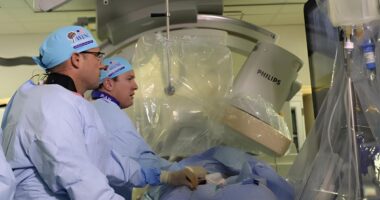A new policy report from the University of Notre Dame outlines recommendations for artificial intelligence governance that prioritises worker welfare over technological advancement, addressing concerns about job displacement and economic disruption.
The research, conducted jointly by Notre Dame’s Keough School of Global Affairs and Americans for Responsible Innovation, provides policymakers with actionable strategies across four key areas affecting AI’s impact on employment and labour markets.
“We want to support the dignity of work in the age of AI,” said Yong Suk Lee, associate professor of technology, economy and global affairs at the Keough School and director of the Future of Labor Lab. “This means informing smart policy options that prioritise workers, helping them leverage new technologies while mitigating the real risks these tools bring.”
The report addresses growing concerns about the deployment of artificial intelligence across various industries, from legal research automation to manufacturing quality control systems, and its potential impact on workforce stability.
Policy recommendations encompass data collection improvements, workforce development programmes, social safety net enhancements, and regional economic interventions aimed at addressing AI-driven inequality.
For data and measurement, the report advocates making existing collection systems more flexible while coordinating information sharing across government agencies. Enhanced data quality would enable policymakers to monitor labour market changes and implement responsive worker support measures.
Workforce development recommendations include modernising education systems through AI literacy programmes in schools and higher education, fostering complementary skills such as critical thinking and creativity, and expanding alternative financing models for worker training, including income-share agreements and outcome-based loans.
The report suggests automatic stabiliser mechanisms for social safety nets, where changing labour market conditions would trigger scaled responses including unemployment insurance, wage protection, tax credits, and subsidised employment programmes.
Regional interventions would address talent clustering in larger cities through targeted workforce training in growth areas and broader economic development in deindustrialised regions. The report references the Tech Hubs programme from the CHIPS and Science Act as a potential model for distributing technological innovation benefits across different geographic areas.
“We focused on providing a range of ideas to support proactive solutions,” said John Soroushian, senior policy director at Americans for Responsible Innovation and report co-author. “Our goal was to offer evidence-based options so policymakers can implement the ones that make sense to them.”
The research emerged from a March workshop on AI and labour policy held at Notre Dame’s Washington office, featuring contributions from government, civil society and private sector experts. Discussions examined AI’s current labour market impacts, adoption perspectives, and effective policy frameworks.
Lee presented key findings at a policy forum in Washington DC on September 18th, continuing broader conversations about ethical AI deployment and worker protection measures.
The collaboration reflects an increasing focus on human-centred technology approaches, particularly in addressing concerns about AI’s potential to exacerbate economic inequality and displace workers without adequate support systems.
The report emphasises providing policy options rather than prescriptive solutions, recognising diverse political perspectives on social programmes whilst establishing frameworks for evidence-based decision-making.











